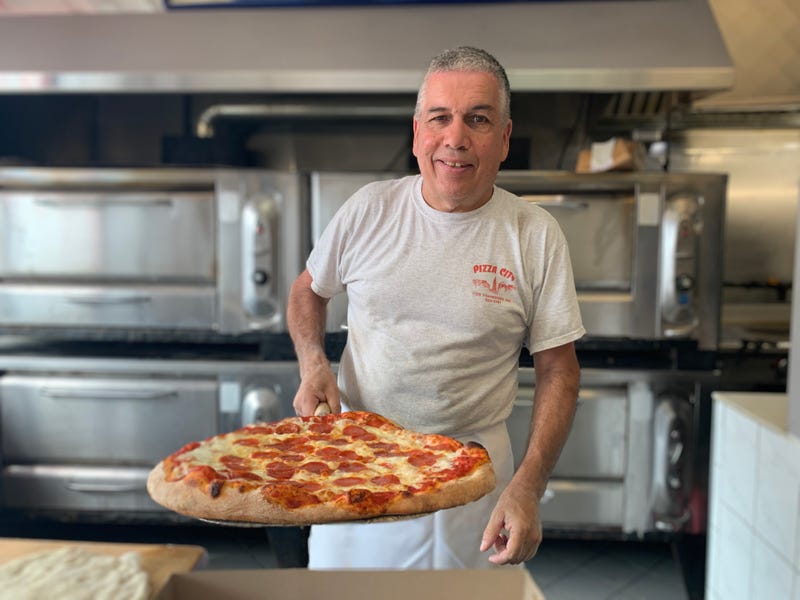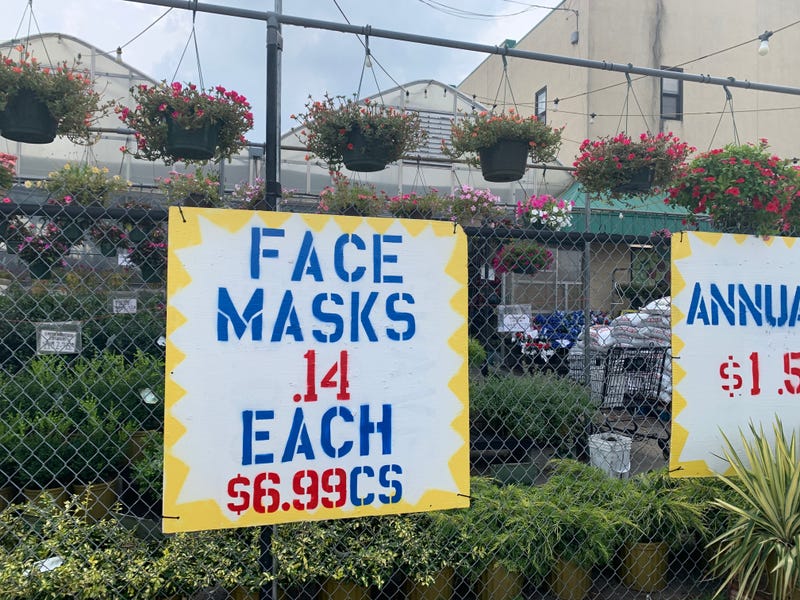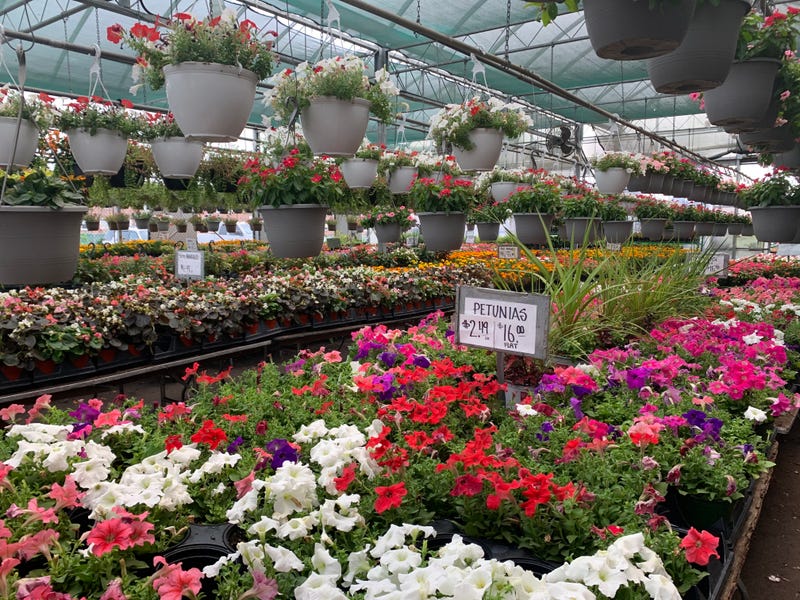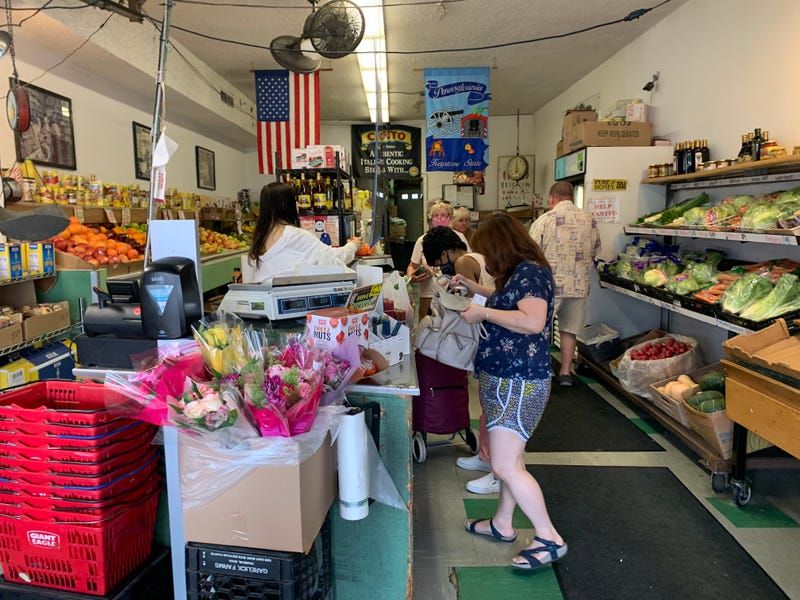
KYW Newsradio’s Community Comeback series checks in on Philadelphia neighborhoods and livelihoods to find out how small businesses made it through the pandemic and how they are surviving, and even thriving, today.
PHILADELPHIA (KYW Newsradio) — Past the bustle and commotion of city life but just before the ample suburbs lies Northeast Philadelphia, a unique sliver of the city that melds diverse communities with individually rich backgrounds.
Head over to Fine Wine and Good Spirits in Somerton, for instance, and you’ll discover that it sells one of the highest volumes of vodka in the entire state. The Northeast was originally dubbed the Borscht Belt because of its large Russian immigrant community, but it has since grown since and diversified with families from other Eastern European countries.
“It’s definitely not like any other place in the city,” said Diana Pivenshteyn, president of the Bustleton Business Association. “It’s kind of a closed community. … It’s different because of the restaurants and the food and the culture. People still dress up to go to the supermarket.”
But like the rest of the world, the coronavirus pandemic hit the community.
“Everything out here was closed, so no one was really dressing up to go anywhere,” she recalled. “A lot of the restaurants out here are like supper clubs, where it would be a whole night out, and all those places were closed.”
For many immigrant business owners, English is not their first — or even third — language, so it was difficult to spread the word about available coronavirus loans and federal aid, Pivenshteyn said.
“We have Russian radio and they would have people come on the radio and talk about getting those loans,” she recalled. “The city couldn’t really help, aside from the PPP loans, and if you weren’t able to get one, then how are you going to survive?”
Fortunately, many Northeast businesses actually survived the hardships of the ongoing pandemic, but some are still feeling the pinch. Between waves of COVID-19 cases, state and federal regulations, required closures and subsequent shutdowns, vaccination efforts, and, most recently, another mask mandate, they are still waiting for an economic revival.
The city recently enacted another indoor mask mandate for businesses and institutions, barring places to require proof of vaccination.
Mandate or not, in her corner of Philadelphia, bartender Jennifer Paxton said the amount of customers coming into Squire Tavern on Bustleton Avenue is still low.
“I think people are still afraid about coming out,” she said. “They’re not coming out. It’s not busy like it was.”
While higher vaccination rates have been shown to rejuvenate the economy — the idea being that more businesses can open with few restrictions, and people reengage with society — Paxton doesn’t believe the city’s vaccination efforts have made an impact one way or the other. And, she’s not an outlier in thinking that.
For pockets of Northeast Philadelphia, the concept of vaccinations driving business seems moot. Many small businesses weathered the storm — some even thrived during the pandemic.
In Somerton, Pivenshteyn said members of the community made an effort to support local restaurants, and most of them were able to remain open. As for vaccinations making a dent, she’s not sure Somerton’s diverse business owners would see it that way.
The vaccine is thought of more as a personal health choice, she suggested. It’s private, and thus shouldn’t drive business. “It’s like asking people if they got a physical or if they’ve been to the doctor.”
However, Ben Fileccia, Philadelphia director of operations and strategy for the Pennsylvania Restaurant and Lodging Association, said the path to recovery is a domino effect that starts with vaccinations.
“We know the only way to eradicate this disease is to get everybody vaccinated, and if we eradicate this disease, then we don’t have to worry about the future shutdowns. We have the economy returning, we have travel and tourism returning, kids are back in schools, so that means the workforce is more available,” he explained.

According to the Philadelphia Department of Public Health, about 63% of Philadelphians are fully vaccinated. As the delta strain has gained fierce momentum, the vast majority of new COVID-19 cases are among unvaccinated people. The variant has backtracked progress and forced restrictions again.
The Northeast is on the higher end of the vaccination spectrum. Data from the department shows the vaccination rate — at least one dose received, per 10,000 residents — by ZIP code. The majority of neighborhoods with a vaccination rate of 5,000 or more include wealthier areas of Center City, but also pockets of the Northeast.
Namely, parts of Bustleton, Torresdale, Rhawnhurst and Mayfair have a large population of older adults and long-term care facilities, which could explain the sizeable amount of vaccinations.
Correspondingly, researchers say vaccinations can breathe life back into these businesses, starting with a return of the workforce. According to March data analyzed by American Progress, an independent nonpartisan policy institute, about 52% of people in states that had vaccinated between 10% to 30% of the adult population were working. In states that had vaccinated from 30% to 50% of the adult population, 58% of people were working.
In the meantime, a “help wanted” sign is still sitting in the window of Mayfair’s Pizza City on Frankford Avenue. Manager John Liebel said they weathered the pandemic quite well — the business was already 80% delivery-based, so it only picked up. However, he’s had to do it with fewer employees, who are still hard to come by.
“During COVID, we all worked a lot more hours than we wanted to just to keep things working,” he said. “We’re just having big trouble staffing the place.”

Alan Stevenson, manager of R&R Produce and Garden Center in Oxford Circle, across from the Roosevelt Mall, echoed Liebel. The clientele isn’t the issue. It’s finding workers.
“We just work more and more and more hours,” he said, adding he’s busier than he’d like to be. “Without having employees and you have to do all the work yourself, you have no family life for anything else.”
“My biggest thing is I’m afraid of our kids and grandkids having to pay off all the debt we’ve accumulated,” added Liebel. “As soon as [people] got a stimulus check, they were nowhere to be found. … If you’re getting a check sent home, why go back to work?”
While Liebel blames the staffing shortage on continued federal benefits, business owner Mark Capriotti said those benefits have actually made it possible for his wholesale restaurant purchasers to pay their debts.
“They owed us some money and I think with some loans and the way [business] picked up, everybody’s solid again,” said Capriotti, who co-owns Capriotti Brothers Fruit and Produce, located on Frankford Avenue in Mayfair. “Everybody’s paying us. I think through loans and business increasing, they caught up with their bills.”

And, he noticed several new shops have opened near him — a nail salon, thrift store, coffee shop, more restaurants — though Capriotti is not sure what breathed new life into his block.
“It could have been the vaccinations. It could have been easier to get loans. Maybe people taking a shot that [they] wouldn’t have taken a shot before. Going into business for themselves or expanding their business where they have more outlets.
“I’m optimistic about the whole COVID thing,” he continued. “I know the delta [variant] has some people worried about maybe something coming back, but if you’re vaccinated, it’s supposedly taken care of.”

